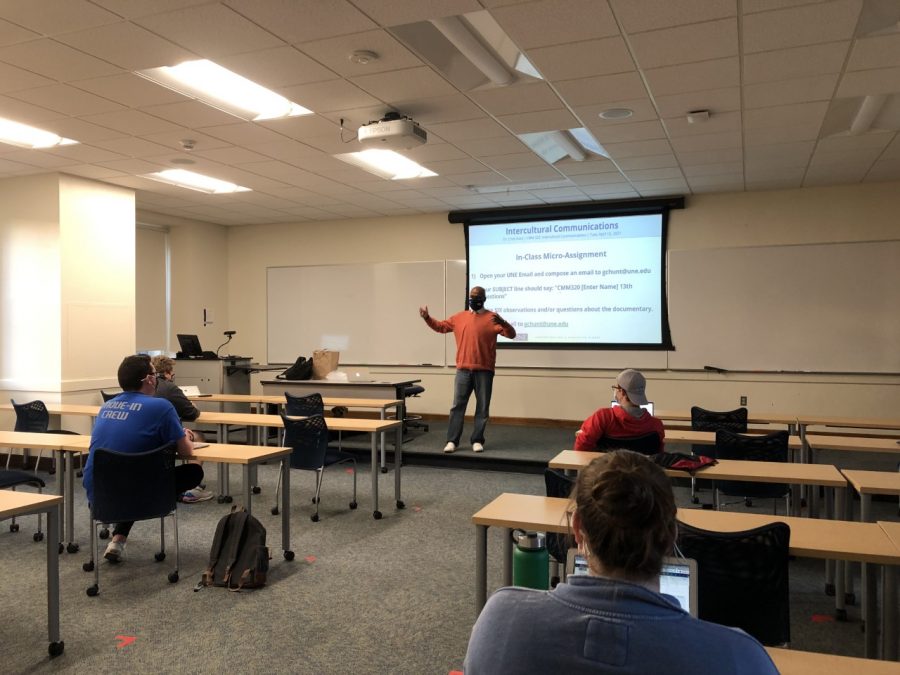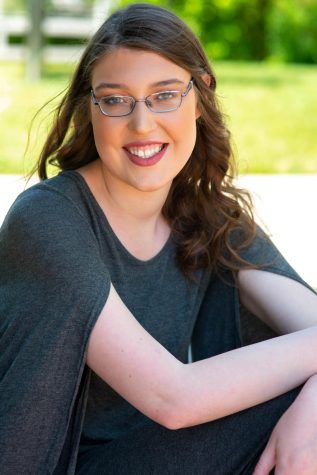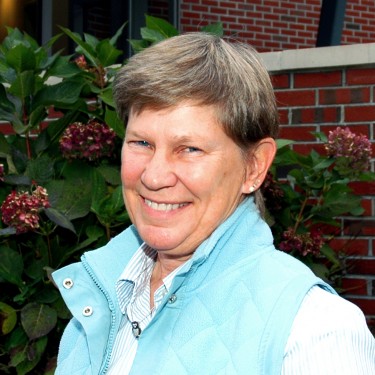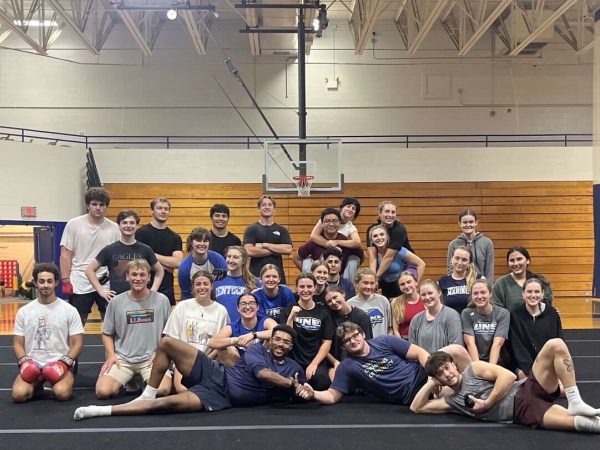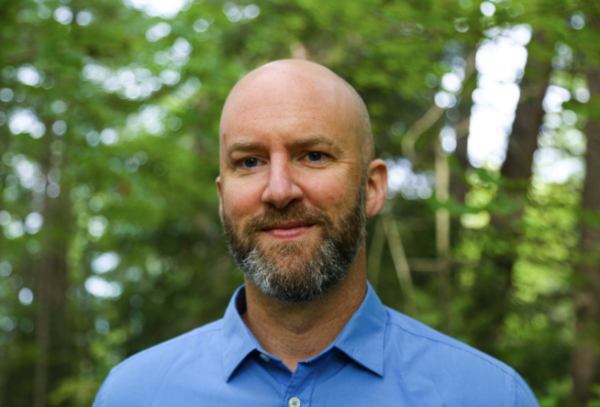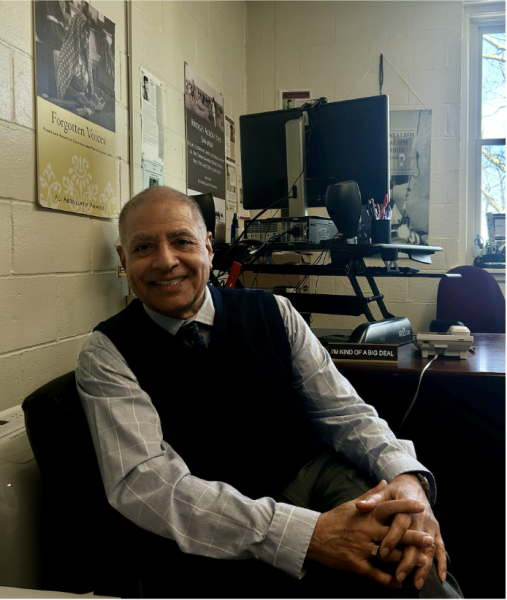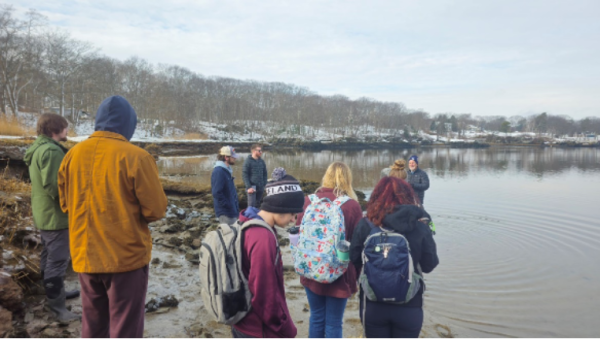A Vision of Diversity, Equity, and Inclusion
A understanding of Dr. Chris Hunt and the work he has accomplished nearing the end of his first year at UNE.
Dr. Hunt teaching Intercultural Communication
Dr. Christopher Hunt is UNE’s Associate Provost for Community, Equity, and Diversity and his leadership has started conversations that have brought real change to the Biddeford and Portland campuses.
His work at UNE began in August of 2020 providing leadership and coordination around the university’s diversity, equity, and inclusion initiatives and vision. Alongside that responsibility, he is also working as a member of President James Herbert’s cabinet.
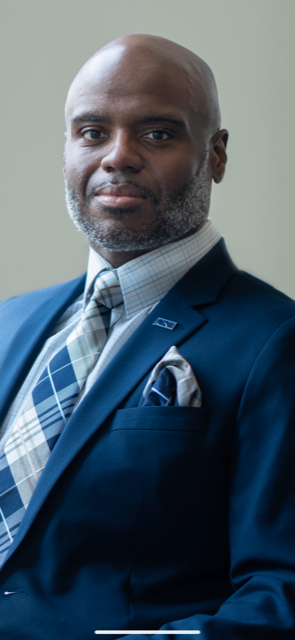
Also known as the Chief Diversity Officer, Dr. Hunt has been making headway into one of his main objectives. When hired by UNE, he was intrigued by UNE’s Strategic Plan, which focuses on six priorities and associated goals and initiatives. Priority four is a commitment to improve and make the campus a more inclusive place which caught Dr. Hunts’ attention. “I could see that UNE was striving to be more engaged in diversity, equity, and inclusion work.” He was also impressed by President Herbert’s commitment to see the plan through. “Unless you have a president who has a focus on diversity, equity, and inclusion, it won’t be a priority,” said Dr. Hunt.
At his previous institution, Lafayette College, Dr. Hunt was Dean of Students and Assistant Vice President and was formally the Dean of Equity and Inclusion. He had a wide range of responsibilities as Dean of Students including, “sexual misconduct, student conduct and activities, resident life, spiritual life, diversity and inclusion for students, recreation services, and Greek life.”
His prior experience and responsibility for that position directly affected students. “All of those experiences, they are titles of offices, but when you dig down into them, they are students’ lives. They are real, on-the-ground challenges that students are trying to navigate” said Dr. Hunt.
Dr. Hunt wants to utilize his position to make the kind of progress he has been after – helping the student body thrive. “I can provide insight or guidance or be a listening ear for students is what I lean into.”
Dr. Hunt is the “quarterback” of priority four, improving campus inclusion. He is tasked with developing and executing the strategies around implementing priority four. To do this, his committee on priority four has developed a plan called “Communication and Community Conversation.” For this plan to work, Dr. Hunt says that “This work is going to require us to listen, understand, and have conversations.”
What does that plan look like?
The plan is broken down into five pillars: Faculty and professional Staff Development, Faculty and professional staff recruitment and retention, Student enrollment (including admissions and financial aid), Immersion of diversity, equity, and inclusion into the curriculum, teaching, and research, and the Student experience and sense of belonging.
On the work already underway. “Dr. Hunt already has collaborated with each of the college’s D.E.I. committees contributing to a university-wide commitment to creating a welcoming, inclusive, and vibrant community,” says Dean Jonathan Millen.
There are eight different college-wide committees that are focused on equity and inclusion work. He has combined all the chairs of those committees in the “Community, Equity and Diversity Council of Chairs” to make sure they are all on the same page.
In spring 2020, UNE conducted a Campus Climate Survey to understand the learning, living, and working conditions at UNE. In the climate study, one of the biggest reasons students had for leaving the university was a lack of sense of belonging on campus or not feeling connected to a campus community.
On the other hand, the study showed that lots of students thought of faculty and staff as mentors. “I’m thinking about how we leverage the idea that students really do look up the faculty to address the idea that so many students don’t find a sense of belonging on campus. We bring those two things together.” He wants to bridge the gap between student, faculty, and a sense of belonging on campus with mentoring programs; small group out-of-class opportunities for students to connect with faculty.
“I want to see our retention rates for faculty and students improve across the board,” says Dr. Hunt.
An increase in student body diversity is also part of that plan. UNE’s current diversity is below the national average with 65% of our student body being white, 25% unknown, 7% Asian, and a little over 2% being black according to Collegefactual. Dr. Hunt and his committees are working to change that. He said it starts with asking the question of “What are we doing now to make our students feel a sense of belonging on campus, to make our students be excited about UNE?”
Dr. Hunt also wants to shine a light on some of the existing communities UNE has around diversity. “Do students know that we have a Black Student Union, or the group called Brothers of Color? That USG has a Diversity, Equity, and Inclusion committee and that we are building a strategic plan around this work? Are there things happening on campus that would make a prospective student excited about coming here?”
“I want to make our campus one that is equitable and inclusive, almost before we make it more diverse.” Dr. Hunt elaborates saying that he wants students of all kinds to be successful at UNE, rather than bring students here to make the campus more diverse, make sure that once they do get here, they have an inclusive and equitable environment that will set them up for success.
Dr. Hunt also teaches Intercultural Communications as an adjunct professor. In his first year teaching this course at UNE, he has found the student engagement to be very high in the backdrop of BLM and social justice movements. “Discrimination, racism, privilege, and bias, those things don’t change, but people’s attention and focus on them has changed in my opinion.”
As an educator, he states, “This focus has provided more opportunities, as people lean into the work more, then you are able to use more tools that you have in your toolbox.”
His students couldn’t agree more, “He has made Intercultural Communications fun for me because he is very well rounded in the topic of intercultural communications and he gives us real-world events that are happening around us that go hand in hand with what we are talking about that week. I think that he is a great professor to teach this course” says Troy Dinga, UNE senior.
Specific current initiatives of Dr. Hunts include “Forums on Fridays”, which is a part of the Communication and Community Conversations Initiative. “Forums on Fridays is series of community gatherings that invite students, faculty, and professional staff to actively participate in discussion on topics that impact UNE campuses, the local region, and our greater society” according to the Office of Community, Equity, and Diversity.
The Black Lives Matter march back in October was a part of that initiative.” Dr. Hunt worked with the organizers; members of the football team and the Athletics Department to make it happen, “We had a discussion about what the event means, what it means for UNE, then we took a step back and looked at society in general,” said Dr. Hunt.
Faculty workshops have been another area of focus in the Communication and Community Conversations Initiative. Dr. Hunt was approached by Dean Millen. The Dean’s Diversity, Equity, and Inclusion Committee had been doing a lot of work over the summer engaging in anti-racism studies and initiatives. Dr. Hunt was asked to help facilitate some discussions and workshops.
These workshops have included focusing on a variety of cultural differences from generations, gender, Identity, inclusivity, bias, and microaggressions. Dr. Hunt continues to create campus conversation, “As opposed to a one-and-done approach, he has facilitated an ongoing dialog addressing issues of diversity, UNE is indeed fortunate to have him,” says Dean Millen.
At the end of the day Dr. Hunt also wants students to know that “In the normal year, I would have been at all kinds of student events, you would have probably had my food already because I love to cook and gather students in small groups.” Dr. Hunt looks forward to engaging with the student body more when Covid restrictions are lifted.



